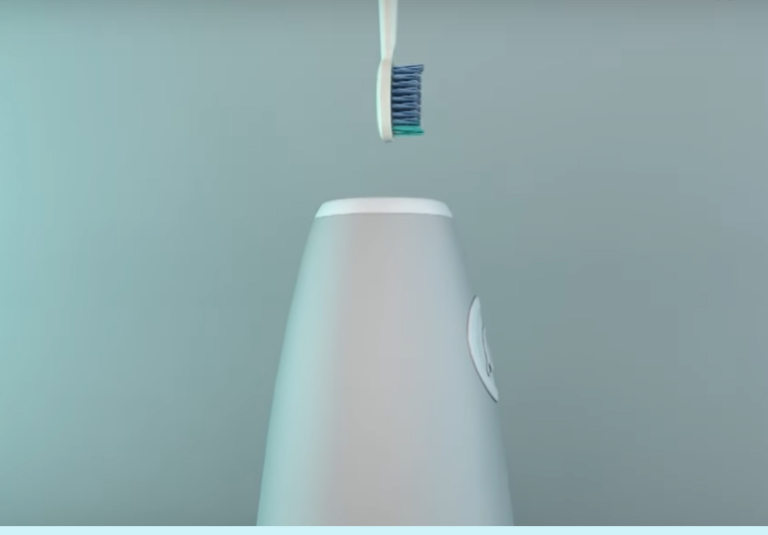Why Choose an Electric Toothbrush Over Manual Ones
An electric toothbrush offers superior cleaning compared to manual brushes. It uses advanced technology to remove more plaque, reduce gingivitis, and ensure healthier gums. The oscillating or sonic movements provide consistent brushing, which is hard to replicate manually. Additionally, many toothbrushes come with timers to ensure you brush for the dentist-recommended two minutes. They are especially beneficial for people with mobility issues, such as arthritis, as they require less effort. For children, the fun and engaging nature of toothbrushes encourage better oral hygiene habits. Overall, the efficiency, convenience, and advanced features of toothbrushes make them a preferred choice for maintaining optimal dental health.

How Toothbrushes Improve Oral Hygiene
Electric toothbrushes are designed to deliver powerful and consistent cleaning. Their bristle movement helps to break up plaque and bacteria, particularly in hard-to-reach areas like molars and gumlines. Unlike manual brushes, toothbrushes ensure uniform pressure, reducing the risk of over-brushing or under-cleaning. Studies have shown that individuals using toothbrushes experience less plaque buildup and fewer instances of gingivitis. The timers and pressure sensors included in many models help users brush effectively without causing damage to the enamel. By promoting better brushing habits and improving plaque removal, toothbrushes significantly contribute to long-term oral hygiene.
The Different Types of Electric Toothbrushes Explained
There are two main types of toothbrushes: oscillating-rotating and sonic. Oscillating toothbrushes feature rotating heads that spin in circular motions to clean teeth effectively. Sonic toothbrushes, on the other hand, vibrate at high frequencies, creating fluid dynamics that help clean beyond the bristles. Both types offer excellent plaque removal, but sonic toothbrushes are known for their ability to clean between teeth and along the gumline. Some models combine both technologies for maximum efficiency. Depending on your oral health needs, you can choose between these types for a thorough and comfortable brushing experience.
Key Features to Look for in an Toothbrush
When choosing an electric toothbrush, consider features that align with your dental needs. Look for built-in timers that ensure you brush for two minutes, pressure sensors to prevent over-brushing, and multiple cleaning modes for sensitive teeth or deep cleaning. Rechargeable batteries are essential for long-term use, while replaceable brush heads provide hygiene and convenience. Some advanced models offer Bluetooth connectivity to track brushing habits via apps. Waterproof designs are ideal for use in the shower. By focusing on these features, you can select a toothbrush that enhances your oral care routine effectively.
Are Electric Toothbrushes Safe for Sensitive Teeth?
Yes, toothbrushes are safe for sensitive teeth and gums. Many models include a sensitive cleaning mode with gentler vibrations and oscillations to avoid discomfort. Soft-bristled brush heads are specifically designed for individuals with sensitivity issues, ensuring thorough cleaning without irritating the enamel or gums. Pressure sensors further enhance safety by alerting users when they are brushing too hard. Dentists often recommend toothbrushes for sensitive teeth as they provide consistent, gentle cleaning that manual brushes may not achieve. With proper use, electric toothbrushes help reduce sensitivity while maintaining oral health.
How Long Should You Use an Electric Toothbrush Daily
Dentists recommend using an toothbrush for two minutes twice daily. Most toothbrushes come with built-in timers that divide the brushing session into 30-second intervals for each quadrant of your mouth. This ensures even cleaning across all areas. Over-brushing can damage enamel and irritate gums, so sticking to the recommended two minutes is crucial. Additionally, using an toothbrush consistently every day improves plaque removal and gum health over time. With proper technique and adherence to brushing guidelines, you can maximize the benefits of your toothbrush.
Rechargeable vs. Battery-Powered Electric Toothbrushes
Electric toothbrushes are available in rechargeable and battery-powered options. Rechargeable toothbrushes are more eco-friendly and cost-effective in the long run, as they eliminate the need for disposable batteries. They often include advanced features such as timers, pressure sensors, and multiple cleaning modes. Battery-powered toothbrushes, on the other hand, are more portable and convenient for travel but may lack advanced features. While both types provide effective cleaning, rechargeable toothbrushes offer better performance and durability. Choosing between the two depends on your budget, lifestyle, and specific dental care needs.
How Often Should You Replace Electric Toothbrush Heads
To maintain optimal oral hygiene, replace electric toothbrush heads every three months or sooner if the bristles show signs of wear. Worn-out bristles are less effective at cleaning teeth and may cause gum irritation. Some brush heads come with indicator bristles that fade over time, signaling the need for replacement. Regularly changing the brush head ensures consistent plaque removal and reduces bacteria buildup. People with braces or specific dental conditions may need to replace brush heads more frequently. By adhering to this replacement schedule, you can keep your brushing routine effective and hygienic.
Can Electric Toothbrushes Help Prevent Gum Disease
Toothbrushes are highly effective in preventing gum disease by removing plaque and bacteria along the gumline. The consistent and powerful brushing action targets areas that are often missed with manual brushing. Pressure sensors prevent aggressive brushing, which can damage gums and lead to recession. Many toothbrushes include gum care modes designed to gently massage and stimulate gums, improving blood circulation. Regular use of an electric toothbrush, combined with flossing and dental checkups, significantly reduces the risk of gingivitis and periodontal disease, ensuring healthier gums over time.
Benefits of Electric Toothbrushes for Kids
Electric toothbrushes make brushing fun and engaging for kids, encouraging them to develop good oral hygiene habits. Many models come with colorful designs, music timers, and interactive apps that motivate children to brush for the recommended two minutes. The gentle vibrations and oscillations ensure thorough cleaning, even for kids who may struggle with manual brushing. toothbrushes are particularly helpful for children with braces, as they clean hard-to-reach areas effectively. By making brushing enjoyable and efficient, toothbrushes help kids maintain healthy teeth and gums from an early age.
Travel-Friendly Electric Toothbrush Options
Many toothbrushes are designed with portability in mind, making them ideal for travel. Compact, lightweight models with travel cases ensure easy packing and protection during trips. Battery-powered toothbrushes are particularly convenient for short journeys, as they do not require charging. Some high-end models feature universal voltage compatibility and USB charging for international travel. Travel-friendly toothbrushes often include long battery life, ensuring you can maintain your oral care routine without interruptions. By investing in a portable electric toothbrush, you can enjoy clean teeth and gums wherever you go.
The Role of Technology in Modern Electric Toothbrushes
Modern electric toothbrushes incorporate advanced technology to improve oral care. Features like Bluetooth connectivity allow users to track brushing habits through smartphone apps. Artificial intelligence in some models provides real-time feedback on brushing techniques, ensuring thorough cleaning. Pressure sensors, timers, and multiple cleaning modes cater to individual dental needs. Sonic and oscillating technologies enhance plaque removal and gum care. These innovations make toothbrushes smarter and more effective than ever before. By leveraging technology, toothbrushes empower users to achieve better oral health outcomes.
Are Electric Toothbrushes Worth the Investment
Toothbrushes are worth the investment due to their superior cleaning performance, advanced features, and long-term benefits. They improve plaque removal, reduce gum disease, and promote better oral hygiene habits. While the initial cost may be higher than manual brushes, the long-term benefits for dental health outweigh the expense. Many users find that electric toothbrushes save money on dental treatments by preventing issues like cavities and gum disease. With their efficiency and convenience, toothbrushes offer excellent value for maintaining a healthy smile.
How to Properly Use an Electric Toothbrush
To use an electric toothbrush effectively, start by applying a pea-sized amount of toothpaste to the brush head. Hold the brush at a 45-degree angle to your gums and let the bristles move gently across your teeth. Avoid scrubbing or applying excessive pressure, as the toothbrush does the work for you. Spend 30 seconds on each quadrant of your mouth, following the built-in timer. Rinse the brush head after each use and store it upright to dry. Proper usage ensures maximum cleaning efficiency and protects your enamel and gums.
How Long Do Electric Toothbrushes Last
With proper care, an toothbrush can last three to five years. Rechargeable models with durable batteries tend to have longer lifespans. Regular maintenance, such as cleaning the brush handle and replacing brush heads, ensures longevity. If the toothbrush shows signs of malfunction, such as reduced power or inconsistent vibrations, it may be time to replace it. Many manufacturers offer warranties that cover defects and battery issues. By investing in a high-quality electric toothbrush and maintaining it properly, you can enjoy long-lasting performance and oral care benefits.

FAQs
How does an toothbrush compare to manual brushing
An electric toothbrush provides superior plaque removal, consistent brushing pressure, and advanced features like timers, which manual brushes lack. This results in better oral hygiene.
Can children use electric toothbrushes safely
Yes, electric toothbrushes are safe for children. Many models are designed specifically for kids, featuring gentle vibrations, fun designs, and interactive apps to encourage brushing.
Do toothbrushes reduce plaque buildup
Yes, electric toothbrushes are highly effective at reducing plaque buildup. Their oscillating or sonic movements clean hard-to-reach areas more efficiently than manual brushing.








